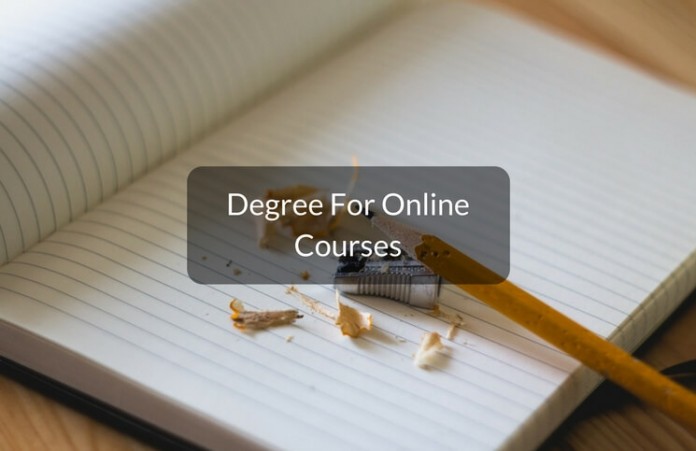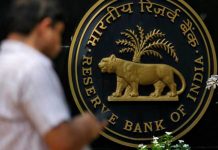In this blog post, Arunava Bandyopadhyay, pursuing M.A. in Business Law from NUJS, Kolkata, strikes an argument on – Should UGC recognize degree for Online Courses?
“Man has not lived before he learns about the things he once did not appreciate” by Grundtvig, a Danish philosopher
Education is the manifestation of idea and knowledge exchange facilitated through systematic instructions from generations to generations. The mode of delivery can be manifold. In the earlier times, it was through concentrated listening from the Gurus and memorizing. Then, with the advent of scripts and writing technologies that knowledge got embedded into leaves, stones, papers and books to today’s digital forms.
While accumulation of knowledge from the various available mediums is one facet, the other facet that mattered is its authentication and recognition in the society.
This need of the society gave way to the establishments called institutions and universities, awarding degrees of recognition for going through a well-researched path of knowledge accumulation. It was the delivery and the recognition that created the difference in the quality of education imparted and separated the masses into different classes of educated people.
One such example from great epic the Mahabharata is the story of Ekalavya, who being as smart and knowledgeable as Arjuna could not achieve similar fame and recognition as he didn’t belong to the institution of Guru Dronacharya.
This tradition was still continuing until the revolutionary advent of distance education and open learning.
While the philosophy of open learning broke the barrier of accessibility to quality education, distance learning overcame the barrier of space and time. Online learning added the required momentum to this revolution and broke all barriers to reach to common people now, it is only the quest for knowledge that matters to get access to the gold reserve of knowledge stored in air in the digital and most accessible form.
However, the curse of Ekalavya is still bothering the society and the one barrier which is still harder to overcome is the issue of recognition. While it is believed that a degree awarded by a well-known premier university can jet set one’s career, the lack of one may or may not be that impressive to the employment sector.
India is a promising entrant in this whole sector of online education and fastly picking up the pace but unfortunately, the education system in India is unable to meet the required momentum.
The apex body responsible for recognition of the online and distance education courses in India since 2013 is Distance Education Bureau (DEB) under University Grants Commission (UGC). While the demand and the numbers of online courses offered by premier institutes are increasing day by day in India which is a positive sign but it has been claimed that unfortunately, UGC has not approved any new course since 2013.
This article puts forward arguments why UGC should start recognizing degree for online at the earliest.
Before we start our debate, let’s look back briefly into the background of online education and UGC to understand the dilemma and how to resolve the case at hand.
Online Education – Brief History
As we already know Online Education is modern revolutionized globalized version of distance learning. So before we get into online education, let’s look back into the history of distance learning.
It dates back to 16th century in Boston with hand written study lessons were sent through post or mail.
- In 1922, courses through radio frequency transmission were offered in Penn state and subsequently more than 200 colleges and universities were granted license for broadcasting.
- In 1965, University of Wisconsin started offering statewide telephone-based courses. [1]
- In 1960, an intranet system called PLATO (Programmed Logic for Automatic Teaching Operations) was started by Illinois University which offered access to recorded lectures [2].
- In 1968, Stanford University started offering part time engineering course through television network.
- In 1976, University of Phoenix was established to offer online degree to working professionals.
- 1979 saw the emergence of immensely popular educational computer game Lemonade Stand, it flourished the idea of Virtual Learning[3].
- In 1982, CALC (Computer Assisted Learning Center) was established for teaching adults.
- In 1984, Electronic University Network (EUN) was established to offer online courses and help other universities in the mission, well before the world wide web.
With the emergence of internet in 1992, CALC evolved into CALCampus offering first “online” courses through internet. [4]
- In 1997 California Virtual University (CVU) got established as recommending authority for providing information about all online courses available from accredited California colleges but it was stopped politically in 1999.
- Journal of Asynchronous Learning Networks (JALN) was created by the prestigious Sloan Consortium providing journal publication academic research solely on online education. In 1999, Jones International university received accreditation making it a legitimate alternative to traditional classroom education.
- In 2002, Massachusetts Institute of Technology started its Open Courseware project and has already offered 2000 undergraduate and graduate online courses.
Though the MOOCs concept has been immensely popular globally but some research undertaken at the University of Pennsylvania shows completion rates as low as only 5%. But it has not discouraged the growth of MOOCs as it is open education and it is up to the learners till what extent they need the knowledge and convert it into practical things.
Brief History of Distance Learning in India
In 1944, the Sargeant Report recommended the formation of University Grants Committee in India to oversee work of Aligarh, Banaras and Delhi University.
- After independence, in 1948 University Education Commission was set-up and was further recommended to reconstitute it on the model of University Grants Commission of the United Kingdom.
- The University Grants Commission got inaugurated in December 1953 and was formally established in November 1956 through an Act of Parliament for the co-ordination, determination and maintenance of standards of university education in India. [5]
It is basically a unique grant issuing agency which has been vested with the responsibility of maintenance of standards in the institution of higher education. UGC in its report for 1956-60 suggested consideration of proposals for evening colleges and award of external degrees. In its 3rd Five year plan, the planning commission highlighted the need for correspondence courses in India.
As such an Expert Committee was formed under UGC Chairman Dr. D. S. Kothari which suggested the formation of the University of Delhi as a pilot project. This led to a surge of correspondence courses in the 1970s but still, education was out of reach of the disadvantaged class. As a solution, in the 1980s, the Open University system was introduced by the government to provide access to quality education to remote and rural areas.
- In 1982, Dr. B R Ambedkar Open University in Hyderabad was set up and IGNOU in 1985. In 1991 the Distance Education Council was established under the IGNOU Act for the promotion of Open University and Distance Education system in India.
From 1982 till now, 13 State Open universities (SOU) have also been established to promote degree and correspondence courses only through distance mode. It is having a strong network of about 11,000 study centers and 70,000 academic counselors with more than 40 lakhs enrollment annually.
| Up to Independence | Post-Independence (as on 31.03.2015) |
| 20 Universities | 711 universities |
| 500 colleges | 40760 colleges |
| 2.1 lakh students | 265.85 lakhs enrollments |
- In 2006, Sakshat project was undertaken by combining all the major educational institutes and organizations using scheme of National Mission in Education through Information and Communication Technology (ICT).
- In August 2010, MHRD formed a committee under Prof. Madhava Menon which recommended creation of a new regulatory body called Distance Education Council (DEC) and shifting it to UGC from IGNOU.
Subsequently, on 29th December 2012, shifted the regulatory authority and notified the repeal and deletion of Statute 28 of the IGNOU Act. It was also mentioned that DEC would be dissolved by 1st may 2013 and UGC would propose new regulations to regularize open, online and distance education in India. Since then, a number of Expert committees have been set up mostly under the chairmanship of Prof. Menon to decide on the guidelines, till then the guidelines of DEC will be followed for granting permission for ODL programs.
Parallel to the above government actions, the MOOCS system of imparting knowledge and education has been well accepted globally in recent years and also to some extent in India.
- This system enables to supplement conventional courses while maintaining parity between regular students and ODL students by adopting common syllabus and examinations.
While most of the foreign education providers are imparting degrees from MOOCs from well-known universities, it has become a roadblock for Indian universities as they have to go through UGC led down processes for each course and degree awarded otherwise, the students will face problem in their career and further education.
Though the IITs have been major players till date in imparting video lectures through NPTEL and GyanDarshan initiatives, however, other than IGNOU, there has not been a major initiative in awarding recognizable credits/degrees awarded. This is a major challenge for the ODL system in India.
The Problem Statement
The discussion above clearly shows a rich history and background for Distance and online education in India and the world, however, the revolutionary growth of online education has slowed down in India when the rest of the globe is growing exponentially. The major reason is the lack of a decision-making authority and the silence of UGC in clearing the pending applications for online and distance learning courses. Though the learners’ euphoria has not diminished but the lack of availability of recognized learning courses in India is turning the tide to other developed nations and creating a massive brain drain.
Being the apex body of Education system in India, it is high time that UGC should prioritize the development of modern education system through the globally accepted modes and embrace new recognition methodologies to impart quality education and recognized degree to the incumbents who in turn will spread that knowledge to the world and India will shine ever again in the field of education.
The author of this article proposes some arguments for consideration by UGC in recognizing Online Degree and paving the way forward for a modern education system.
Arguments for Recognizing Degree for Online Courses
- The undergraduate sector in India accounts for around 15 million (86%) whereas 2 million in post graduate courses, rest apart the PhD’s as only 1.4 lakhs have enrolled for post graduate research in India.
UGC should recognize that this huge gap is not the dearth of talent but the societal system that prevails in India.
The average Indian middle-class family imparts education to their children to get a job after graduation and upheld the family responsibilities. Though they have the interest to pursue higher education and research but if the university system is not friendly enough to allow this then they have to enroll in foreign MOOC’s and leave the country to get better education in foreign countries.
It is high time for UGC to pace up the recognition process and allow private – public universities partnership to fulfill the gap.
- The XII five year plan targets Gross Enrollment Ratio (GER) from the level of 15% to 30% by 2017 however, the average growth rate is around 7%.
Even if India succeeds by 2020, 100 million qualified students will not have places in universities. The only way out is imparting online education and recognizing degrees awarded through online courses.
- Education system in India is facing shortage of good qualified faculty for imparting higher education due to a huge gap created over the decades. This is plaguing the entire system of education and making the degree holders unemployable.
Online education can solve this problem in two ways –
- First of all, students can choose from which faculty they want to study in an open system and can access there tutorials or recorded lectures.
- Further, students can choose their own subject of interest and learn to earn the required skills and become employable.
- Uneven spread of location of higher education institutes across the country and states is creating variation in quality education access in urban vs rural areas and across different states and districts.
Online education recognition can solve this problem from grass root level and will encourage learners to access at least 1 online course in their lifetime.
- Asia is having the world’s highest online education growth rate of 17.3% and Indian market is expected grow at CAGR of 17.4% by 2018. Penetration of internet access and mobile technologies will propel it further with rapid growth of learning on the go technologies.
It would be a huge task for UGC to improve the digital platforms to such levels if not started now or else, the market will be totally captured by foreign players in collaboration with private universities. [6]
- On 19th July 2016, vide a Gazette notification UGC announced the launch of “Credit Framework for Online Learning Courses through SWAYAM” regulation which is a big step towards facilitating online learning but it does not solve the problem of degree or recognition. It also contradicts UGC’s own provision of Universities have to seek approval for each new course they want to launch, which stops renowned universities to launch new and advanced courses which are globally acceptable.
- The SWAYAM platform mandates vide article 4.4 of the gazette notification that online courses should be allowed only when suitable teaching staff are not available and sought elective papers are not on offer.
This does not facilitate the overall purpose of online education because the learners of online mode are not only full time/part time students but can be anyone and anybody of any age, gender, profession or education level.
Hence the SWAYAM is only serving the course/study gap of particular university or institute.
- As per Chapter IV, section 22 (1) of the UGC act, University established as per rules set by UGC is entitled to confer or grant degree and it does not specifically excludes the distance education or online education . It is also a repeat exercise or wastage of time and power if UGC every time have to go through and recognize each and every course and degree being imparted by the Universities which are empowered and monitored by UGC itself. The universities are always answerable to UGC only and if any anomaly is noticed UGC can take action against those institutions.
- As per UGC Act, there is a provision of “Open University” which exclusively offers courses through distance mode but is it really necessary to be a single mode university?
Universities offering regular courses can very well offer online courses through different digital advancements and it is proved through NPTEL courses imparted by IITs.
- Back in 2013, American Council on Education approved five courses for college credit being imparted by Coursera Company in collaboration with different US universities.
Coursera is now offering 1000+ courses to around 15 million users (as on September 2015) collaborating with 140+ renowned universities with some of world’s best among them. Sadly, only 1 Indian varsity features in this list.
UGC has the big responsibility in hand to bring Indian Universities in the list of top universities of the world for which fast decision making will be the top most criteria.
- While UGC is worried about grading and credit system, the MOOC’s platforms worldwide have adopted innovative grading and credit systems like peer to peer grading, webcam based proctored exams, digital signatures with instant photographs and computer-aided algorithmic grading.
It needs to be appreciated that these grading systems check the problem of cheating as well as confers recognition to students in no time which can be produced to recruiters in various platforms.
- Amusingly some of the online courses are also arranging online convocations to award degrees of prestigious universities and students are getting job offers on completion and satisfactorily proving the knowledge and skills gained.
- It needs to be understood that the revenue potential from this online system of education is immense with only collaboration and application of digital technology which is available easily nowadays.
Unless UGC steps in, there is a high possibility that private players will emerge and capture the market and private recruiters will start recruiting from these skill-based courses. This trend is already picking up and people are mutually benefited.
- In recent times, every student is considering adopting at least 1 or 2 skill based course from reputed organizations because traditional courses are not sought after and adequate enough to get the first job.
Though UGC has understood this way back and is adopting skill based and vocational courses beside traditional courses but the impact is not far reaching as on date, due to various problems of quality and accessibility or teacher or teaching methodologies.
- Though it’s appreciated that UGC is cautious of the flourishing of colleges making money by awarding junk degrees and flooding the market but this also can be stopped only when UGC is fast enough in taking quick decisions.
While the fake universities and courses need to be de-recognized, at the same time, the students needs to be assured of the availability of recognized courses or degrees. UGC can only be successful as a regulator with proactive steps in bringing reforms to the education system.
- Last but not the least, when India is dreaming of Make in India and Digital India, why not the initial steps be taken through digital education and indigenously created online courses?
Only when the young generation of India is empowered with knowledge and innovation they can take the light forward and fulfill the dream of the nation.
Conclusion
While degree is a physical, shareable recognition of Knowledge or skill, it can never be more important than knowledge itself. It’s true that a degree can help in getting a job and makes one’s life easier and helps in reaching pinnacles quickly, at the same time, the number of great personalities who have achieved great success without any physical degree is quite big and the trend is already picking up.
Recently, big multinationals and Silicon Valley companies are hiring skilled people who are talented but lack in formal education certificates.
The Online Education revolution is silently encouraging the growth of knowledge and skills while taking a big step towards equality and openness, where talent and hard work will only determine success and not the nepotism of system based bureaucratic education and university system, where the quest of knowledge will enable any individual to grab that knowledge and not the educational background established by the system or government.
It’s now up to UGC and other such institutions to consider this revolution as a threat and be more cautious and create barriers or accept the opportunity with open mind and jump into the flow of knowledge revolution and empower it to create better human beings and make the world and universe a better place than ever.
What do you think? How important are the online courses? Drop your comments & share the article.
References:
- http://www.straighterline.com/blog/brief-history-online-learning-infographic/
- http://www.innovativelearning.com/online_learning/timeline.html
- http://www.teachthought.com/uncategorized/a-brief-history-of-video-games-in-education/
- http://www.calcampus.com/calc.htm
- http://www.ugc.ac.in/page/genesis.aspx
- Ken Research Group report, ‘India’s E-Learning Market Outlook to FY2018 – Increasing Technology Adoption to Drive Future Growth’
 Serato DJ Crack 2025Serato DJ PRO Crack
Serato DJ Crack 2025Serato DJ PRO Crack










 Allow notifications
Allow notifications


